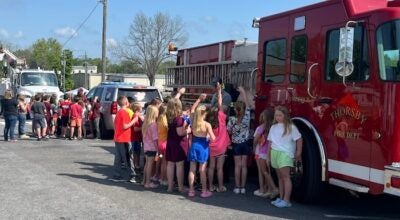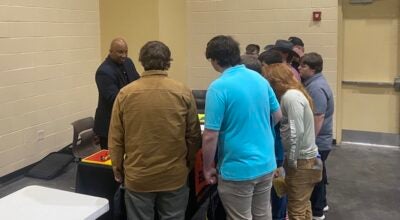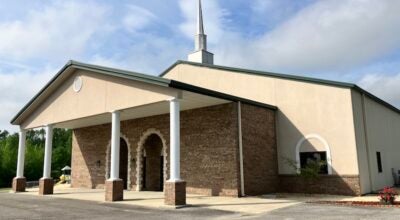Attorney general talks immigration law, oil spill and bingo
Published 5:20 pm Tuesday, May 1, 2012
Alabama Attorney General Luther Strange addressed several high profile cases, including ones involving the state’s immigration law and the 2010 BP oil spill, during remarks Tuesday to the Chilton County Chamber of Commerce.
Strange said the biggest issue he is personally working on involves the Deepwater Horizon oil spill.
“The BP oil spill case is the biggest environmental disaster in the history of the United States,” Strange said. “It basically shut down the economy in Baldwin and Mobile counties, but it also affected everyone who lives on the key corridors in our state. Every part of the state, whether you realize it or not, lost money and was affected.”
Alabama, along with other Gulf of Mexico states, are suing BP and other parties responsible for the spill.
Strange said he is optimistic for a trial this year. On Tuesday, BP asked the court in New Orleans to postpone any trial until after a November hearing concerning settlements for most private-party claims.
“I’m hoping by the fall we will have a trial and will determine once and for all how responsible BP is so they will do the right thing and pay Alabama the money it lost because of their spill, or we will have a chance to have a trial and get a jury and judge to decide,” Strange said.
Strange also addressed the state’s immigration law. The attorney general was in Washington, D.C. last week as the U.S. Supreme Court heard a case debating the constitutionality of Arizona’s immigration law, which is similar to Alabama’s.
Strange said that “everyone recognizes that immigration is a federal issue,” but that the laws haven’t been enforced for 10 or 15 years.
“The federal government should and has a duty to enforce the country’s immigration laws. They have not,” Strange said.
Strange said he believes the court will rule that states can have some role in helping enforce immigration law.
“The court at the end of the process indicated to us — I think — that there is going to be a role that the states can play in helping the federal government enforce the immigration laws,” Strange said. “When we learn at the end of June what the court is going to do, it will give guidance to the state of Alabama and all the states exactly where this line of power comes together.
“At that point the (Alabama) Legislature is going to have to figure out what to do to conform our law to the court’s rules.”
Strange also addressed bingo, Jefferson county’s sewer debt and a new law that targets looters that came about after last April’s devastating tornadoes.
On bingo, Strange said there was a lot of rhetoric about the issue when he took office.
“I came in and said we’ve got to change this debate here. We’ve got to turn it down. It’s not good for our state to have this kind of battle,” he said. “We got to go back to the basic principals, and that is what does the law say and let’s give everyone their day in court.”
For the 18 counties that allow charitable bingo there are laws on the books about what is legal and what is not, Strange said.
“Slot machines are illegal no matter where you are in the state of Alabama. Electronic bingo has to meet other criteria,” he said. “If the people of Alabama want gambling or they don’t, that’s the job of the Legislature. We just want to make sure the law is enforced.”
The attorney general’s office wrote a letter back in April asking that the federal government ban slot machine-like electronic bingo at Alabama’s Indian casinos.
“I have no jurisdiction on Indian land, but I do think that if it’s illegal in Alabama and illegal here in Chilton County or Clanton, it’s illegal on an Indian reservation,” Strange said. “Now, it might snow in July here before they do anything about it, but we are going to do everything we can because it’s about fair treatment and not treating one group differently than another.”






